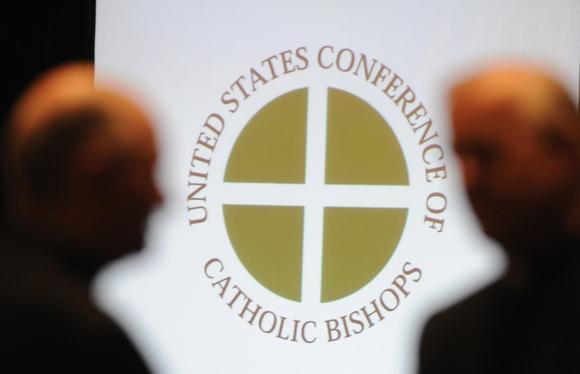U.S. Catholic Bishops in Baltimore to Elect New President
By Jonathan Pitts
The nation's top Catholic bishops will convene this week in Baltimore to choose a new leader, a decision that will help set the course for an American church striving to build its appeal while grappling with stances on immigration and contraception coverage. The United States Conference of Catholic Bishops expects close to 300 active and retired members as it holds its annual convention at the Waterfront Marriott Hotel. Cardinal Timothy Dolan of New York is to begin the four-day gathering Monday with his final address as president after serving a three-year term. The bishops will elect Dolan's successor Tuesday from a slate of 10 nominated bishops — including Baltimore Archbishop William E. Lori. It will be a telling decision at a key time in church history. This week's meeting is the first during the tenure of Pope Francis, the first Latin American-born pontiff and a man widely seen as offering a friendlier face to the non-Catholic world than many of his predecessors. It also comes in the wake of Dolan's term, which many felt gave the bishops a more unified public presence than they had enjoyed in years. "The presidency is a significant position, and Dolan's term shows how significant it can be," said Rocco Palmo, editor of Whispers in the Loggia, a widely read blog on the Roman Catholic Church. "He truly took ownership as voice of the [organization]. Whoever comes next will have immensely big shoes to fill." The active bishops present will vote by secret electronic ballot. Any candidate receiving a simple majority during the first two rounds will be chosen. Dolan's successor takes office at noon on Thursday, the official close of the assembly. Dolan's election three years ago stunned members of the church across the country because it shattered what Palmo called an "ironclad precedent" dating back more than half a century. Since 1956, every vice president of the organization — a body composed of the active and retired members of the church's U.S. hierarchy — who stood for election was chosen. Gerald Kicanas, Bishop of Tucson, Ariz., was vice president at the time, a position he had held since 2007, when he narrowly defeated Dolan for that job. When the conference chose Dolan over Kicanas at the 2010 general assembly, it was less a repudiation of Kicanis than a vote of confidence for Dolan, said Palmo, who has broken news of several high-profile church appointments before the church announced them. As archbishop of New York, Dolan held a high-profile position and was known as a master of the media landscape, according to Palmo. "He made his name in books and interviews," Palmo said. Dolan's fellow bishops apparently concluded those were the qualities they wanted at a time when the church was still in the early stages of recovering from the aftermath of its child sexual abuse scandals, Palmo said. "He was viewed as a voice that couldn't be ignored on the media landscape, and they believed it was time to amplify the presidency," Palmo said, adding he believes the bishops don't know whom they'll vote for until they convene in Baltimore. This year's general assembly, as always, will see the prelates addressing a variety of matters of concern to the church. One committee will introduce the idea of having the body develop a formal position on pornography. Another will assess the progress of "the new evangelization," a broad-based framework of action the bishops adopted last year to encourage members to return to Scripture, re-energize their personal faith, then turn their energies to outreach efforts. Bishops also will elect chairmen of five important committees, which Don Clemmer, a conference spokesman, said is nearly as important as their selection of a new president. "The bishops will be choosing their leadership, and that doesn't just mean the president and vice president, but also the bishops who will take the lead on a range of issues represented by different committees in the years ahead," he said. Committees play a powerful role in the organization, setting the agendas for issues such as church doctrine, international justice and cultural diversity. Committees on church governance and child protection are among the five to see new leaders chosen this week; in all, the organization has 15 formal committees.
|
.
Any original material on these pages is copyright © BishopAccountability.org 2004. Reproduce freely with attribution.
